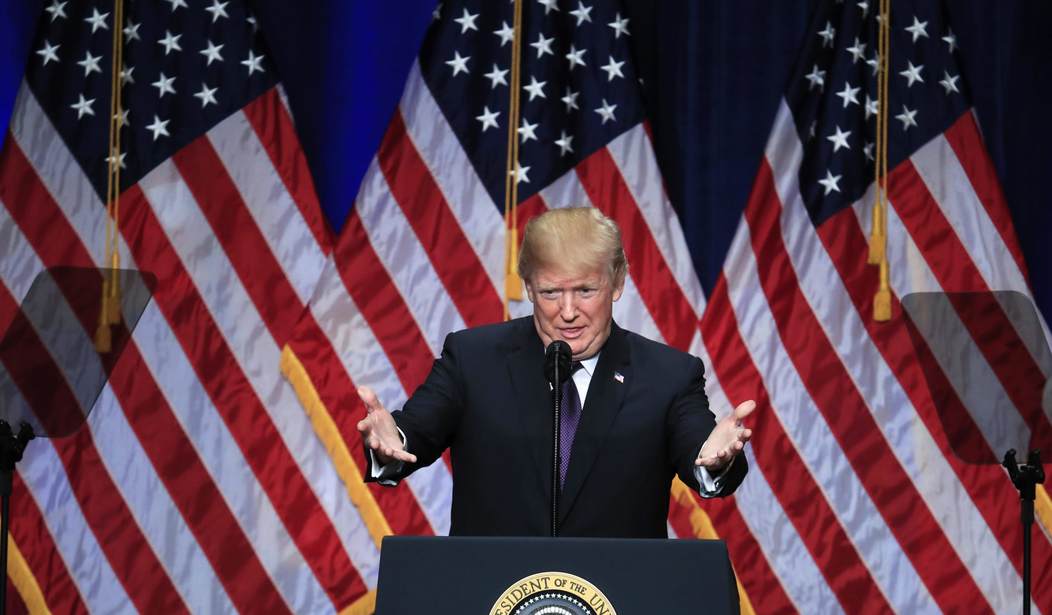Former Director of National Intelligence James Clapper said today that Russian President Vladimir Putin appears to be handling President Trump as a KGB officer would manage an intelligence asset.
At his year-end press conference Thursday, Putin lauded Trump for “some major achievements, even over the short period he has been in office.” According to the White House, Trump and Putin spoke by phone later that day, and Trump “thanked President Putin for acknowledging America’s strong economic performance in his annual press conference.”
The two spoke again on Sunday. The Kremlin released the news first, saying Putin thanked Trump for the CIA passing along information that helped derail a terror plot targeting Kazan Cathedral in St. Petersburg. “The Russian president asked the U.S. president to convey his appreciation to the Central Intelligence Agency director and the operatives of U.S. intelligence services who received this information,” the Kremlin said.
In their own statement, the White House said “Trump stressed the importance of intelligence cooperation to defeat terrorists wherever they may be,” and “both leaders agreed that this serves as an example of the positive things that can occur when our countries work together.”
Trump praised the call in his remarks today announcing the National Security Strategy, which each administration has been required to deliver to Congress since 1947. “We also face rival powers, Russia and China, that seek to challenge American influence, values, and wealth,” he said in prepared remarks at the Ronald Reagan Building in D.C. “We will attempt to build a great partnership with those and other countries, but in a manner that always protects our national interest.”
Clapper told CNN afterward that the past few days were “illustrative of what a great case officer Vladimir Putin is — he knows how to handle an asset, and that’s what he’s doing with the president.”
“We’ve shared intelligence with the Russians for a long time. We’ve always done that. Although in my experience with them has been pretty much of a one-way street, where we provide them intelligence and we don’t get much back,” he explained.
“…What we did is the right thing; certainly when people’s lives are at risk that we do have a duty to warn. So the intelligence community, CIA did the right thing here.”
Putin, he said, followed that with “a rather theatric gesture of the phone call to thank President Trump for something that kind of goes on below the radar and is not all that visible.”
“You have to remember Putin’s background. He’s a KGB officer. That’s what they do. They recruit assets,” Clapper added. “And I think some of that experience and instincts of Putin has come into play here in his managing of a pretty important account for him, if I could use that term, with our president.”
Russia wasn’t mentioned any further in Trump’s speech, which focused on his national security “pillars”: homeland security with an emphasis on an immigration crackdown and preventing terrorist ideology “from spreading into the United States,” promoting economic prosperity at home including “a complete rebuilding of American infrastructure,” getting rid of defense sequestration and modernizing the military, and advancing “American influence in the world” by “building up our wealth and power at home.”
“With this strategy, we are calling for a great reawakening of America, a resurgence of confidence, and a rebirth of patriotism, prosperity, and pride,” Trump said.
House Foreign Affairs Committee Chairman Ed Royce (R-Calif.) said after the release of the strategy that a “revitalized U.S. broadcasting system is critical to countering the spread of terror, promoting human rights, and checking Putin’s aggression.”
“And we need more trade agreements that advance U.S. interests and ensure a level playing field for our job creators. Because the world does not stand still if we close off our borders to trade,” Royce added. “Other countries – like China – will take advantage, leaving the U.S. out of important markets for our goods, services and agriculture.”









Join the conversation as a VIP Member